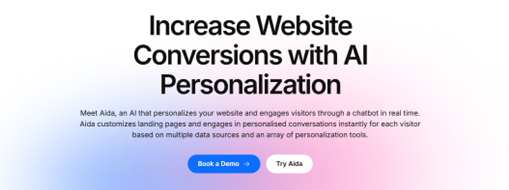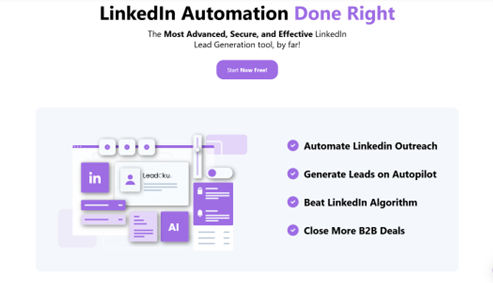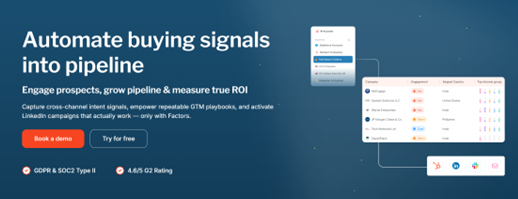Technology is advancing at a pace that’s hard to ignore, and artificial intelligence (AI) is at the heart of this transformation. For small business owners like us, adopting AI-powered tools in small businesses isn’t just a luxury anymore—it’s quickly becoming a necessity. The ability to streamline operations, make smarter decisions, and stay ahead of the competition is a game-changer for those ready to embrace it.
Disclosure: If you click on my affiliate/advertiser’s links, I am going to receive a tiny commission. AND… Most of the time, you will receive an offer of some kind. It’ s a Win/Win!
When I first started exploring the potential of implementing AI in small enterprises, I was amazed by how accessible and practical these tools have become. AI is no longer reserved for massive corporations with endless budgets. Today, it’s tailored for small businesses like ours, helping us tackle everyday challenges like managing inventory, marketing effectively, and even improving customer service. It’s like having an extra pair of hands—or an extra brain—working for your business 24/7!
The benefits of AI for small business owners go far beyond convenience. These tools can save time, reduce costs, and eliminate repetitive tasks, giving us more room to focus on what matters—growing our businesses. What’s more, AI tools can provide valuable insights that help us make data-driven decisions, level the playing field with larger competitors, and build stronger relationships with our customers.
But I understand the hesitation. Getting into AI might feel overwhelming or even intimidating at first. What tools should you start with? How much will it cost? Is it worth the effort? These are all questions I asked myself too. The good news is that AI is much simpler to adopt than most of us think—and the rewards are well worth the leap.
In this article, I’ll share actionable advice, real-world examples, and practical insights on how to harness the power of AI for your small business. Together, we’ll explore how to get started, what tools to consider, and how to make the most of AI in day-to-day operations. Let’s go straight in!
Enroll in the AI Product Manager Nanodegree Program for a comprehensive overview of AI and machine learning for business. You'll learn to build and train AI models, evaluate results, and measure success. Click HERE now!Table of Contents
1. What Is AI and Why Does It Matter for Small Businesses?
A beginner-friendly explanation of AI and its growing importance in the world of small business.
2. The Benefits of AI for Small Business Owners
Explore how AI can save time, cut costs, and improve decision-making for small enterprises.
3. AI Tools for Small Business Operations: Where to Start
Discover accessible AI tools that can enhance productivity, marketing, and customer service.
4. Implementing AI in Small Enterprises Without Breaking the Bank
Learn cost-effective strategies to adopt AI, even on a tight budget.
5. Using AI for Smarter Marketing and Customer Insights
Find out how AI can personalise marketing campaigns and improve customer relationships.
6. Automating Repetitive Tasks with AI Tools
Explore tools that can handle mundane tasks, freeing up your time for strategic growth.
7. AI-Powered Tools for Inventory and Supply Chain Management
Discover how AI helps streamline stock management and predict demand more accurately.
8. Overcoming Challenges When Adopting AI in Small Businesses
Address common obstacles like fear of complexity, costs, and training.
9. The Future of AI in Small Businesses: Trends to Watch
Stay ahead by exploring emerging AI trends that will shape small business operations.
10. Getting Started: Actionable Steps for Adopting AI Today
A step-by-step guide to help small business owners begin their AI journey confidently.
11. Summary and Conclusion: Unlocking the Potential of AI: The Future of Small Business Success

1. What Is AI and Why Does It Matter for Small Businesses?
Artificial intelligence (AI) might sound like a futuristic concept, but it’s already woven into the fabric of our daily lives—and businesses are no exception. AI refers to computer systems designed to perform tasks that typically require human intelligence, such as learning, decision-making, and problem-solving. For small businesses, AI is more than just a buzzword—it’s a powerful tool to level the playing field with larger competitors.
Imagine having a virtual assistant that can predict customer behaviour, automate repetitive tasks, or even recommend the best time to restock inventory. That’s AI in action. It learns from data, identifies patterns, and makes recommendations to optimise operations and improve decision-making. It’s like having a supercharged problem-solver working behind the scenes.
Why does this matter for small businesses? Because AI takes the guesswork out of running operations. It helps us focus on what really matters—building relationships with customers, growing our teams, and driving innovation. With AI, small businesses can operate smarter, not harder, making every decision more informed and impactful.
Actionable Advice: Don’t be intimidated by AI. Start small. Look for tools that solve specific pain points in your business, like automating social media posts or managing customer inquiries. As you gain confidence, you’ll see just how transformative it can be.

2. The Benefits of AI for Small Business Owners
The benefits of AI for small business owners are vast, touching every corner of operations. First and foremost, AI saves time by automating routine tasks like data entry, customer responses, or scheduling. For instance, chatbots powered by AI can handle customer inquiries 24/7, freeing you up to focus on growing your business.
AI also improves accuracy. Unlike humans, AI doesn’t get tired or make errors when analysing data. Tools like QuickBooks use AI to categorise expenses automatically, ensuring your financial records are always in order. This level of precision reduces costly mistakes and builds confidence in your decisions.
Another game-changer is how AI enhances customer relationships. By analysing data, AI tools can provide insights into customer preferences, allowing you to personalise marketing campaigns and improve engagement. For example, email marketing platforms like Mailchimp use AI to suggest the best times to send emails, increasing open rates and conversions.
Finally, AI boosts productivity. Small business owners often juggle multiple roles, and AI helps lighten the load. From managing supply chains to streamlining hiring processes, AI tools make it easier to run a business efficiently and effectively.
Actionable Advice: Identify one or two tasks in your business that take up too much of your time. Research AI tools designed to address these areas, and test them out to see how they can simplify your workload.

3. AI Tools for Small Business Operations: Where to Start
Starting with AI tools for small business operations might feel overwhelming, but the good news is there are plenty of beginner-friendly options. These tools are designed to be accessible, affordable, and effective, even for those with no technical expertise.
For customer service, chatbots like Tidio or Zendesk are fantastic tools. They handle inquiries round the clock, provide instant responses, and even escalate issues to human agents when necessary. They’re perfect for small businesses looking to improve customer satisfaction without hiring additional staff.
In marketing, tools like Jasper AI can help create content quickly and effectively. Whether you’re writing social media captions, blog posts, or ad copy, these tools generate suggestions based on your input. They save time while maintaining the creative edge you need to connect with your audience.
For day-to-day operations, platforms like QuickBooks or Xero use AI to automate bookkeeping and financial management. Meanwhile, tools like Trello or Monday.com enhance project management by using AI to prioritise tasks and set deadlines. These tools streamline workflows, ensuring nothing slips through the cracks.
Actionable Advice: Start with free trials of these tools to get a feel for how they fit into your workflow. Many AI platforms offer scalable pricing, so you can start small and expand as your business grows.
4. Implementing AI in Small Enterprises Without Breaking the Bank
One of the biggest misconceptions about AI is that it’s expensive. While this may have been true in the past, today’s AI tools are more affordable and accessible than ever, making implementing AI in small enterprises a realistic goal, even on a tight budget.
Many AI tools operate on subscription models with flexible pricing tiers. For instance, platforms like HubSpot offer free versions of their CRM tools, which include AI-powered features like lead tracking and email automation. Similarly, Canva’s AI design tools are available in their free plan, allowing small businesses to create professional visuals at no cost.
Another cost-saving approach is to integrate AI tools into systems you already use. Many popular platforms, like Shopify and WordPress, now include AI features for tasks like inventory management, website design, and customer service. By using these built-in tools, you avoid the expense of purchasing standalone software.
Lastly, remember that small steps add up. Start by automating one process, such as scheduling social media posts with AI tools like Buffer. Once you see the time and money saved, you’ll feel more confident investing in additional AI solutions.
Actionable Advice: Look for AI tools that offer free plans or affordable subscriptions. Focus on those that integrate easily with your existing systems to get the most value for your investment.
Guess less and sell more with predictive segmentation. Sign up and start targeting today.
5. Using AI for Smarter Marketing and Customer Insights
One of the most exciting applications of AI for small businesses is in marketing. AI tools can help you reach the right audience, personalise campaigns, and optimise your marketing efforts. This level of precision was once reserved for large corporations but is now accessible to small businesses like ours.
AI-powered tools like HubSpot and Mailchimp use data analytics to understand customer behaviour. They can segment your audience based on demographics, purchase history, or engagement patterns. This allows you to create personalised email campaigns, recommend products, or even predict when a customer is most likely to make a purchase.
Social media marketing is another area where AI shines. Tools like Hootsuite and Buffer use AI to analyse engagement metrics and suggest the best times to post. They can also track trends and recommend hashtags, making your social media strategy more effective.
Finally, AI helps you measure results with precision. By analysing campaign performance, these tools identify what’s working and what’s not. For example, Google Analytics uses AI to highlight patterns in website traffic and customer journeys, helping you refine your approach.
Actionable Advice: Start by integrating AI into one aspect of your marketing, such as email campaigns or social media scheduling. Use free trials to experiment with tools and find the ones that suit your business.
6. Automating Repetitive Tasks with AI Tools
Running a small business often means wearing multiple hats, which can leave little time for repetitive tasks like scheduling, invoicing, or customer follow-ups. This is where AI tools can step in, saving time and reducing human error.
For scheduling, tools like Calendly automate meeting bookings by syncing with your calendar and eliminating back-and-forth emails. Invoicing platforms like FreshBooks or QuickBooks use AI to generate and send invoices, track payments, and even send reminders automatically.
Email management is another area where automation can help. AI tools like Boomerang or SaneBox prioritise important emails and schedule responses. These tools ensure you never miss a critical communication while freeing up time for strategic tasks.
By automating these mundane processes, you can focus on growing your business instead of getting bogged down in the day-to-day. And the best part? Many of these tools are easy to set up and require minimal oversight.
Actionable Advice: Identify one repetitive task you find most time-consuming and research an AI tool designed to handle it. Test its efficiency and measure the time saved over a month.

7. AI-Powered Tools for Inventory and Supply Chain Management
Inventory and supply chain management are critical for small businesses, especially those dealing with physical products. AI-powered tools can help you track inventory levels, predict demand, and optimise supply chains, ensuring you always have the right stock at the right time.
For example, platforms like QuickBooks Commerce (now integrating the former TradeGecko) or Unleashed Software use AI to forecast inventory needs based on historical sales data and market trends. This reduces overstocking and stockouts, saving you money and improving customer satisfaction.
AI also enhances supplier management. Tools like SAP’s AI-driven solutions analyse supplier performance and help you negotiate better contracts. Additionally, shipping platforms like ShipBob use AI to optimise delivery routes, reducing costs and speeding up delivery times.
These tools are particularly useful for e-commerce businesses, where inventory mistakes can lead to lost sales or unhappy customers. By implementing AI in these areas, you can streamline your operations and maintain better control over your resources.
Spocket – US & EU Dropshipping – Top Quality ProductsActionable Advice: If inventory management is a pain point for your business, start with a tool like QuickBooks Commerce. Use its forecasting features to align your stock levels with customer demand.
8. Overcoming Challenges When Adopting AI in Small Businesses
Adopting AI in small businesses comes with its challenges. Common concerns include high costs, lack of technical expertise, and fear of disrupting existing workflows. Addressing these issues is key to successfully implementing AI in your business.
The cost of AI tools is often a misconception. Many platforms offer affordable subscriptions, free trials, or pay-as-you-go pricing models, making them accessible even for small businesses. Additionally, starting with just one or two tools reduces financial risk.
Technical expertise is another hurdle, but most modern AI tools are designed to be user-friendly. Platforms like Shopify or Wix incorporate AI features into their interfaces, allowing you to leverage AI without needing coding skills. Plus, many tools offer tutorials, support, and integrations that make onboarding simple.
Finally, disrupting workflows can be avoided by introducing AI gradually. Start by automating one process and ensure your team is comfortable with the tool before expanding its use. Involving your team in the decision-making process can also reduce resistance to change.
Actionable Advice: Take it slow. Begin with a small AI project and track its benefits. Use the insights gained to expand AI adoption across other areas of your business.
9. The Future of AI in Small Businesses: Trends to Watch
AI is constantly evolving, and staying informed about upcoming trends can give small businesses a competitive edge. One trend is the rise of AI-driven customer service tools, such as chatbots that handle complex queries or voice assistants that support customers in real time.
Another exciting development is predictive analytics. Tools are becoming more advanced at forecasting trends, from market demand to customer preferences. This allows businesses to make proactive decisions and stay ahead of competitors.
AI is also making strides in employee management. HR tools now use AI to analyse team performance, recommend training opportunities, and even predict when an employee might leave. This helps small businesses retain talent and improve productivity.
Finally, ethical AI is gaining traction. Businesses are increasingly focusing on transparency and fairness in AI systems, ensuring that data is used responsibly and without bias. This is an important consideration for building trust with customers and partners.
Actionable Advice: Keep an eye on emerging AI tools in your industry. Join webinars or read industry blogs to stay informed about the latest trends and innovations.
Free accounting software from Wave for small businesses. Click HERE
10. Getting Started: Actionable Steps for Adopting AI Today
Adopting AI doesn’t have to be overwhelming. Start small by identifying one or two areas where AI can make the biggest impact on your business. This could be automating social media posts, improving customer service, or managing inventory.
Next, research AI tools that suit your needs and budget. Look for platforms that offer free trials or flexible pricing plans. Test these tools to see how they integrate with your existing systems and processes.
Once you’ve selected a tool, involve your team in the onboarding process. Provide training and encourage feedback to ensure everyone is comfortable using the new technology. Remember, adopting AI is a journey, not a race—take it one step at a time.
Finally, measure the impact of AI on your business. Track metrics like time saved, costs reduced, or customer satisfaction levels to evaluate the return on investment. Use these insights to refine your strategy and expand AI adoption gradually.
Actionable Advice: Start your AI journey today by researching a tool that addresses your biggest challenge. The sooner you begin, the sooner you’ll see the benefits AI can bring to your business.

11. Summary and Conclusion: Unlocking the Potential of AI: The Future of Small Business Success
Adopting AI-powered tools in small businesses is no longer an option—it’s a powerful opportunity to transform the way we work and compete in a fast-paced world. As we’ve explored throughout this article, AI can save time, reduce costs, and improve decision-making, enabling small enterprises to operate smarter and achieve more. From automating repetitive tasks to personalising customer interactions, the possibilities are endless.
We began by understanding what AI is and why it matters for small businesses. It’s not about replacing humans; it’s about empowering us to focus on what we do best—building relationships, solving problems, and driving innovation. The tools available today are more accessible and affordable than ever, offering tailored solutions for businesses of all sizes and industries.
The benefits of AI for small business owners go beyond convenience. These tools provide valuable insights, helping us anticipate customer needs, forecast demand, and streamline operations. By automating mundane tasks and managing resources more effectively, AI allows us to concentrate on growing our businesses and serving our customers better.
I know that implementing AI in small enterprises can feel daunting. But as we’ve discussed, starting small—by identifying one or two areas to optimise—can make a huge difference. Whether it’s scheduling, marketing, or inventory management, there’s a tool out there designed to simplify the job. And the best part? Many of these tools are user-friendly, with free trials and affordable pricing plans to help you get started.
Looking ahead, the role of AI in small businesses will only grow. Staying informed about trends like predictive analytics, ethical AI, and customer service innovations will keep you ahead of the curve. Adopting these technologies today positions your business for long-term success and resilience in a competitive market.
I invite you to explore the tools and strategies shared in this article and take the first step toward integrating AI into your business. Bookmark this blog, share your experiences, and return regularly for more actionable advice. At Krislai.com, my goal is to help you elevate your business acumen, improve your leadership skills, and navigate the challenges of modern entrepreneurship with confidence. Let’s embrace the future together—starting today!
- How Live Shopping Can Skyrocket Your Small Business Sales: The Ultimate Guide to Getting Started
- Turn AI Anxiety into Competitive Advantage: How to Future-Proof Your Workforce for the AI Revolution
- Unlock Profit: Calculate Customer Lifetime Value & Maximize Growth
- Creating a Customer Persona: A Step-by-Step Guide On How To Do It
- Unleashing the Power of Digital Signage: The Best Software to Transform Your Business








